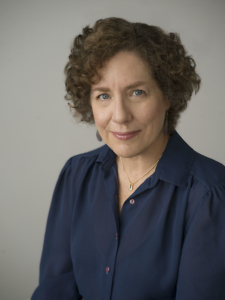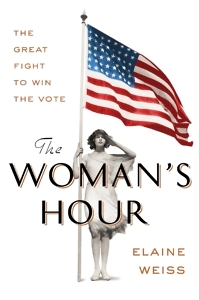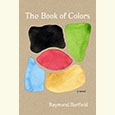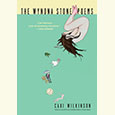On Account of Sex
In The Woman’s Hour, Elaine Weiss dissects the battle for women’s right to vote
FROM THE CHAPTER 16 ARCHIVE: In conjunction with Humanities Tennessee’s exhibition tour of Voices and Votes: Democracy in America, Chapter 16 is revisiting coverage of notable books on civil rights and the foundations of a democratic society. This review originally appeared on February 27, 2018.
***
The long march toward voting rights for women began as early as the 1820s, but it wasn’t formalized as a political goal until 1848 when Elizabeth Cady Stanton read her “Declaration of Sentiments” at the Seneca Falls Convention held in Seneca Falls, New York. In The Woman’s Hour: The Great Fight to Win the Vote, Elaine Weiss chronicles the history of that battle beginning with its early days, when Stanton and Susan B. Anthony joined forces, continuing through the Nineteenth Amendment’s introduction in 1878 and its passage in 1918, and finally to a 1920 showdown over ratification in Tennessee.

The amendment reads, The right of citizens of the United States to vote shall not be denied or abridged by the United States or by any State on account of sex. Congress shall have power to enforce this article by appropriate legislation.
By August 1920, thirty-five states had ratified the amendment. Tennessee was poised to put the amendment over the top—giving women the right to vote in every state, in every election from dogcatcher to president—or stop the suffrage movement in its tracks. After three tied votes, the decision teetered on the shoulders of Harry Burn, a young man who wore the red rose of opposition in his lapel but who carried a pro-suffrage letter from his mother in his coat pocket.
Weiss tells much of this story through the machinations of three powerful women who converged with their attendant forces on the Hermitage Hotel in Nashville: Carrie Catt, the steely-eyed head of the National American Woman Suffrage Association; Sue Shelton White, a firebrand leader in the newer, more radical National Women’s Party; and Josephine Pearson, a passionate “Anti” from Monteagle, Tennessee.
Catt “was a firm believer in evolution, in both biological and social realms; her faith in it kept her optimistic, confident of progress,” writes Weiss. “For Carrie Catt, woman suffrage was not simply a political goal; It was nothing less than the next logical step in the moral evolution of humankind.”
Sue White, a native Tennessean, had begun her career with Catt’s army of suffragettes but had become impatient with its slow-but-steady strategy. White threw her lot in with the more confrontational National Women’s Party and proudly wore a “prison pin” on her blouse, a recognition that she had been arrested and jailed for the cause. Weiss explores the gradual schism that developed between the Catt wing of the movement and more radical women like White.
 The anti-suffrage Pearson, by contrast, was a passionate defender of “the spirit of the woman of the Old South” and viewed suffragettes as “modern Eve [asking] for the forbidden fruit that may give out its deadly poison in the possible disruption of home.” Weiss subjects the “Antis” to the same scrutiny she trained on the pro-suffrage movement, from Pearson in Nashville to such prominent national figures as Ida Tarbell, the muckraking journalist. “Men and women are widely apart in functions and possibilities,” Tarbell wrote. “They cannot be made equal by exterior devices like trousers, ballots, the study of Greek.”
The anti-suffrage Pearson, by contrast, was a passionate defender of “the spirit of the woman of the Old South” and viewed suffragettes as “modern Eve [asking] for the forbidden fruit that may give out its deadly poison in the possible disruption of home.” Weiss subjects the “Antis” to the same scrutiny she trained on the pro-suffrage movement, from Pearson in Nashville to such prominent national figures as Ida Tarbell, the muckraking journalist. “Men and women are widely apart in functions and possibilities,” Tarbell wrote. “They cannot be made equal by exterior devices like trousers, ballots, the study of Greek.”
The Antis offered displays of blatant racism, flying the Confederate battle flag at their rallies and warning of dire consequences to “Anglo-Saxon values” if “Negro women” were allowed to vote.
“This well-researched and well-documented history reveals how prosuffragists sometimes compromised racial equality to win white women’s enfranchisement, and that, although the 19th Amendment was ratified, there exists to this day an ongoing battle to effect universal, unrestricted suffrage,” Library Journal writes of The Woman’s Hour.
This timely exploration of the history of American gender politics reverberates during the present debate over female equality in all aspects of life and reminds us of how long and complex that struggle has been.

Lyda Phillips is a veteran journalist who grew up in Memphis and has earned degrees from Northwestern, Columbia, and Vanderbilt universities. The author of two young-adult novels, she worked for United Press International before returning to Nashville.


